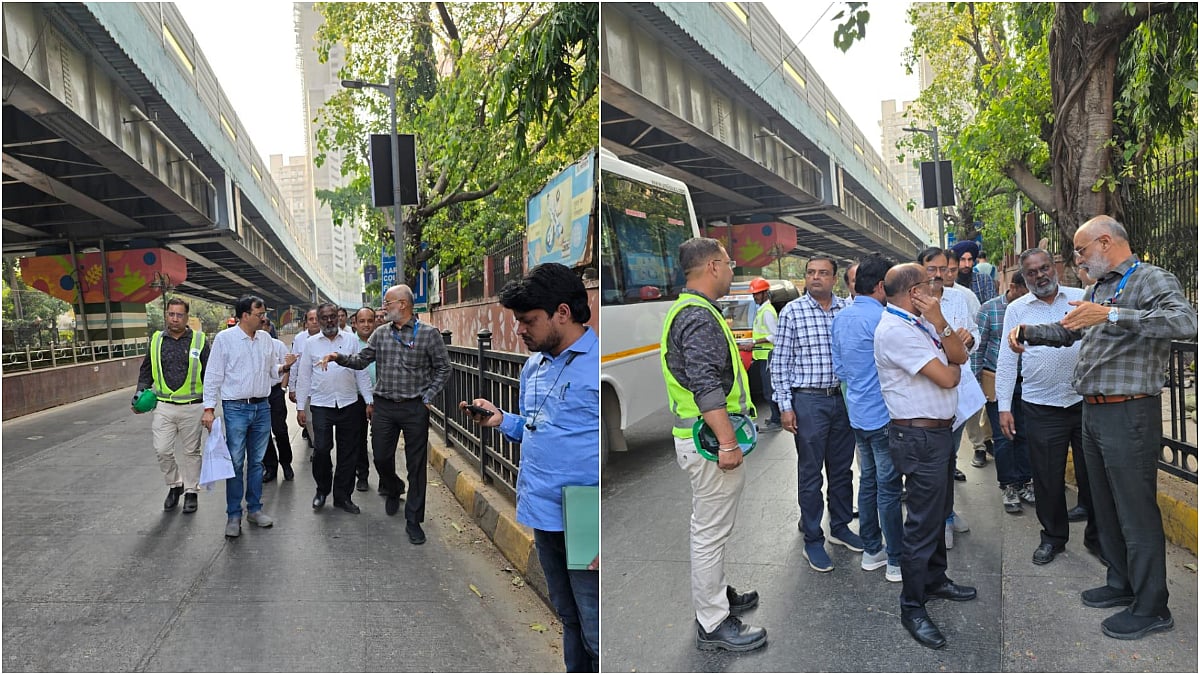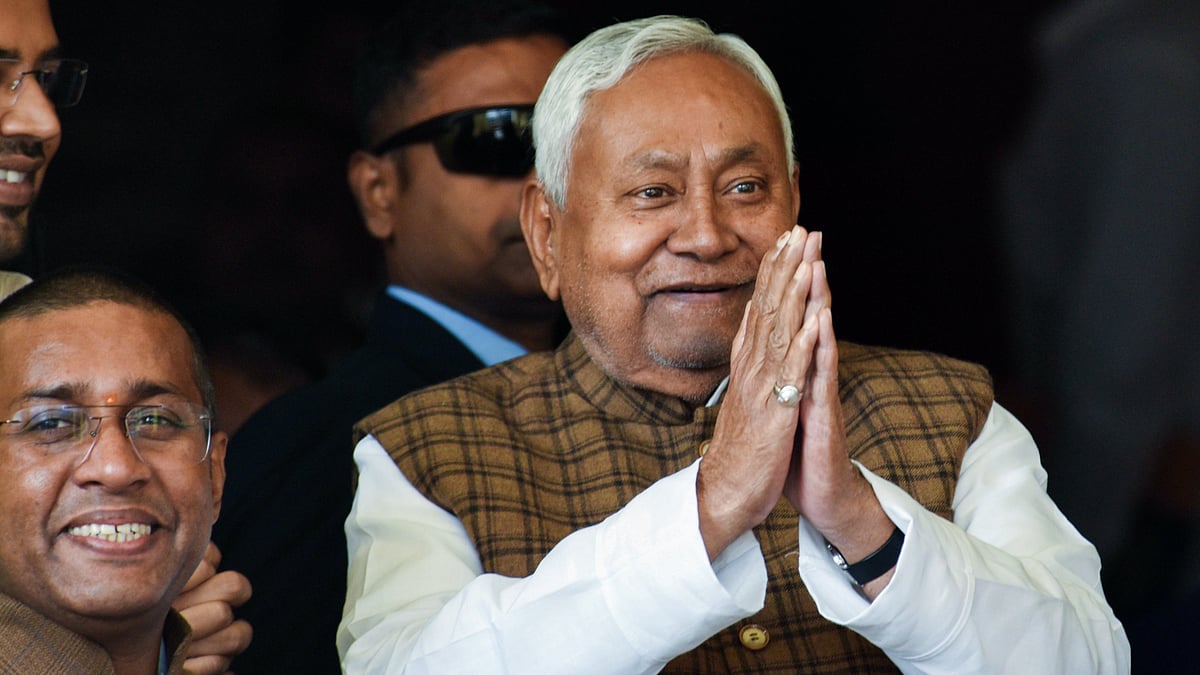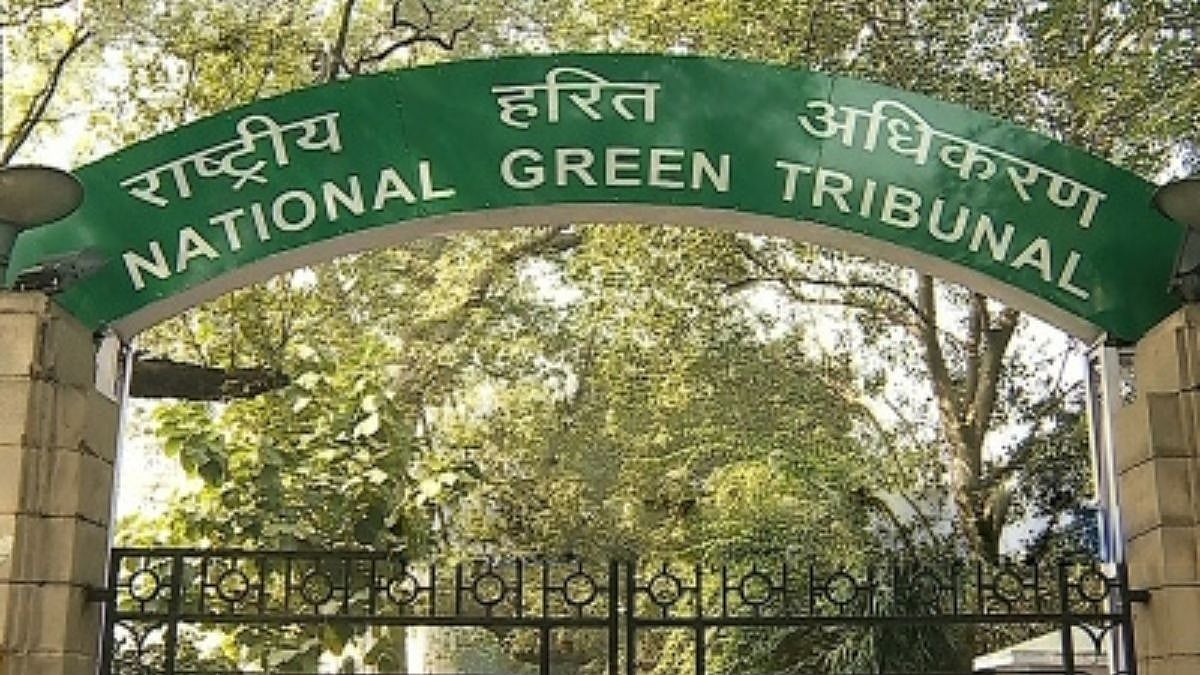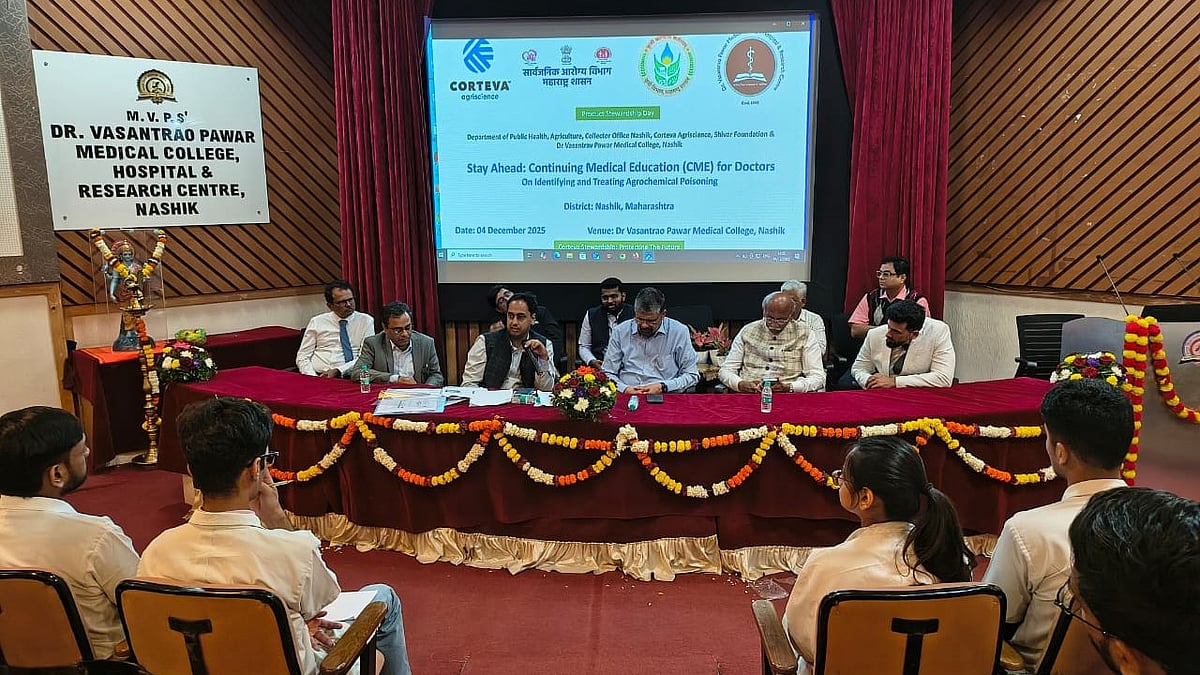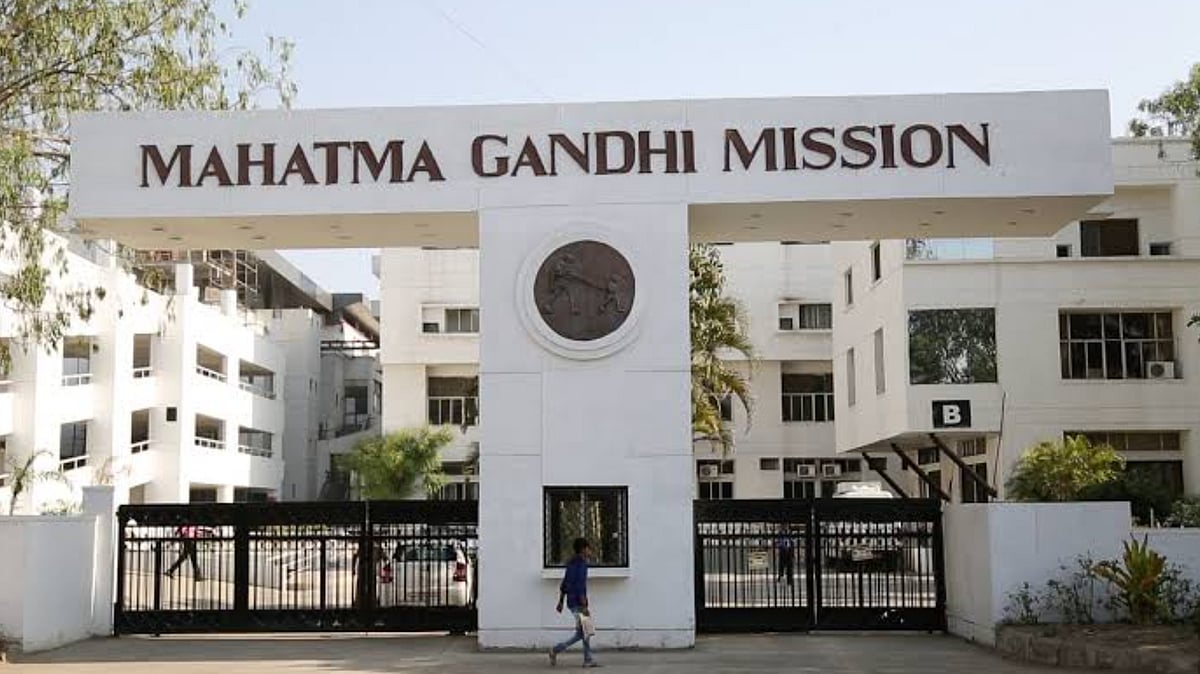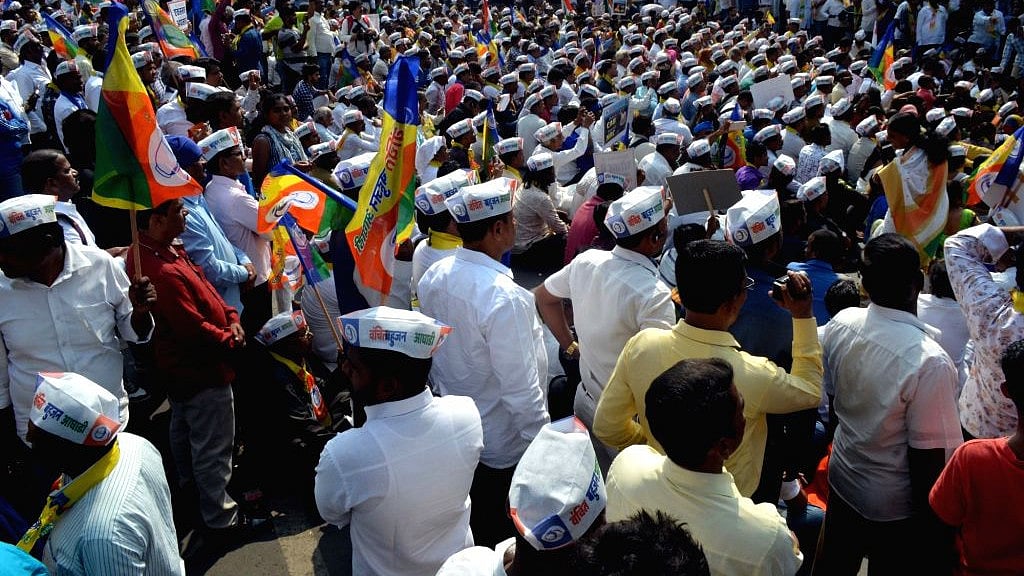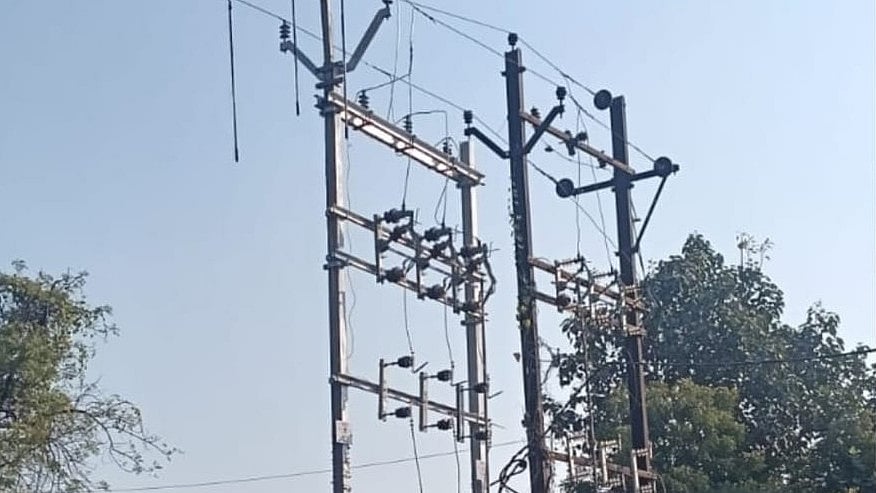Prof R Raj Rao's fifth novel, 'Mahmud and Ayaz', was launched on Friday in Pune, attended by several of Rao's former colleagues, students, and admirers of his writing.
Described as funny, subversive, provocative, and wonderfully rude, the novel draws inspiration from the legendary love story of Sultan Mahmud of Ghazni and his Turkish slave-cum-lover Ayaz. It follows the journey of Mahmud Fakhar, a young, casually radicalised Muslim man who, after failing to qualify for the IAS, finds a temporary teaching job in a second-rate college. Bereaved after his entire family dies in the 2015 Hajj stampede, Mahmud's life takes an unexpected turn when he encounters a homeless Hindu lad, the illegitimate son of a tamasha dancer. Mahmud hires him as his domestic servant, converts him to Islam, renames him Ayaz, and thus begins their affair. Their unconventional life together leads to a series of journeys to Somnath, Kashmir, and back to Mumbai when one of them is on his deathbed.

As the host of the launch, this author had the pleasure of asking questions to Rao, ensuring the conversation remained spoiler-free. Here is an excerpt from our discussion:
Could you introduce the book to the audience?
I consider this novel to be my most ambitious work yet because it delves into history, a departure from my previous works. Historically themed narratives demand thorough research, for I am not a historian by training. However, my interest was kindled when I read and taught the book 'Same-Sex Love in India: Readings from Literature and History' by Ruth Vanita and Saleem Kidwai.
While iconic love stories such as those of Romeo and Juliet, Laila and Majnu, Heer and Ranjha, and Shirin and Farhad are well-known, the book sheds light on a lesser-known same-sex legendary love affair between Sultan Mahmud and Ayaz. This revelation was eye-opening for me, especially considering the societal norms and taboos of the time.

What struck me about their story was its unusual happy ending, a rarity in tales of heterosexual love of that era. This irony, juxtaposed with the societal attitudes towards homosexuality, fascinated me and compelled me to explore further.
I find history interesting not in isolation, but in its connections to the present. Thus, I chose to use the story of Sultan Mahmud and Ayaz as a backdrop and weave it into a contemporary love story set in my native city, Bombay, which I refuse to call Mumbai. Initially, I wasn't sure of how to go about blending historical narrative with modern-day realities, but it ultimately became a rewarding journey.
What kind of research did you do for the novel?
Internet and libraries are valuable resources, but I feel that a writer must visit the locales being used in the novel. For instance, I visited Somnath in Gujarat, a significant setting in the novel, just before the 2020 lockdown. Immersing myself in the atmosphere and nuances of the locale firsthand was essential. I firmly believe in blending travel with research, so I often incorporate visits to novel locations into my travels. During the section set in Kashmir, I spent 15 days there, living on houseboats and absorbing the essence of the region.

Authenticity is paramount in my writing. I remember Salman Rushdie implying in 'Midnight's Children' that Kurla station in Bombay is on the Western line but it's actually on the Central line. You don't want readers to accuse you of inauthenticity.
Was it difficult to get the novel published?
I received a message from my publisher, Ravi Singh, saying the novel was promising. During my visit to Delhi in February 2022, we met and discussed plans to release the book by May. However, in 2023, Singh expressed his concerns. He said if we published the book as it is we would either end up in jail, or the courts, or be dead. Consequently, he advised me to tone down certain elements and remove specific content.
This led to a delay in the publication process, but eventually, the novel is here. Remarkably, only a few sections were removed, primarily those deemed contentious in the current socio-political climate. As most of us would agree, we are no longer a liberal democracy.

In your novel, there are instances where another writer might have aimed to evoke emotional responses from the reader, but you chose not to. Can you elaborate on this?
Different writers have their own aesthetics. There are broadly two types of fiction — that which merely entertains, and that which disturbs and offends. Certainly, my job is to entertain, but also to shock and offend people, and jolt them out of their complacency. Only then is some change possible. Writing, whether fiction or non-fiction, is a utopian pursuit. We, who become writers, are not satisfied with the world as we know it; we have a vision for a better world and we try to achieve it through writing. I mean, if you're only going to write about things that are familiar to people, why should they bother reading it?
Did Mahmud really love Ayaz, or was it purely to secure his finances?
What is love? Everyone who claims they are in love with one another is obviously using each other. So, I don't think there is any such thing as pure love. Love is opportunism and self-interest, so why blame Ayaz? What's a heterosexual marriage if not the same thing?

